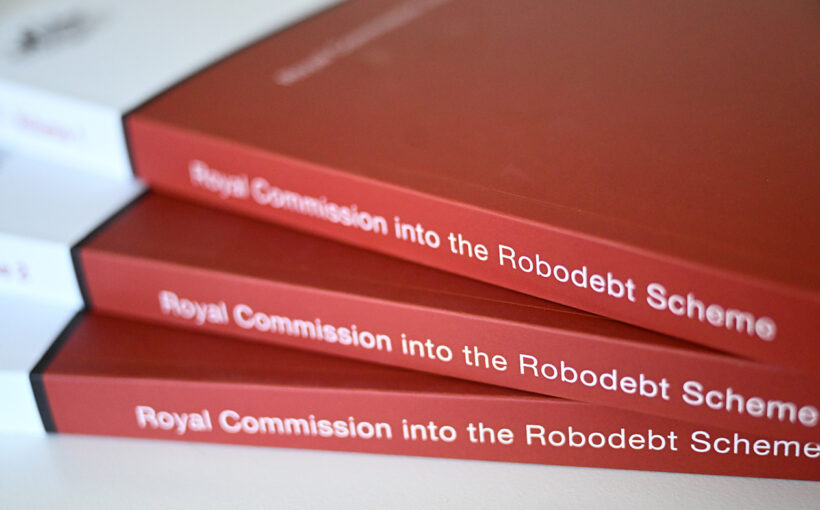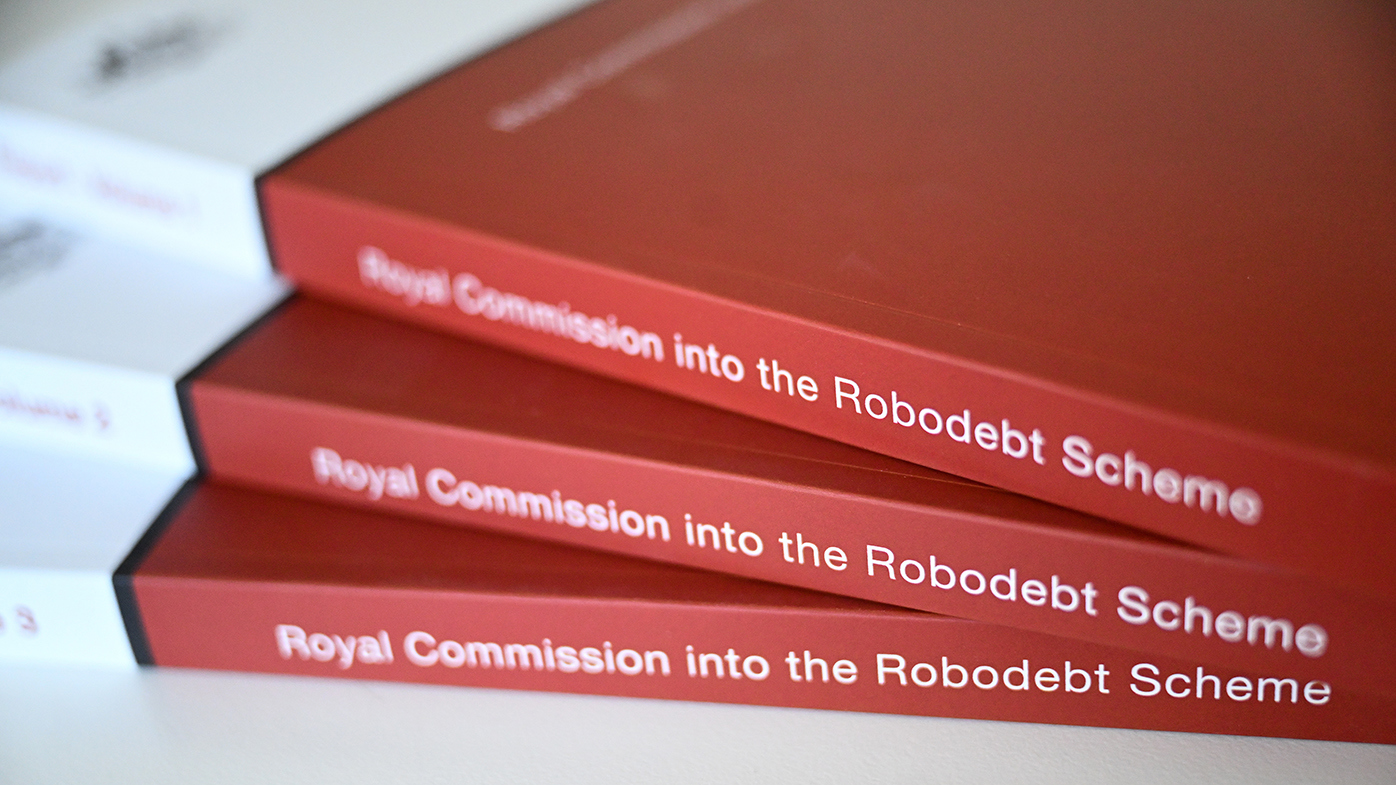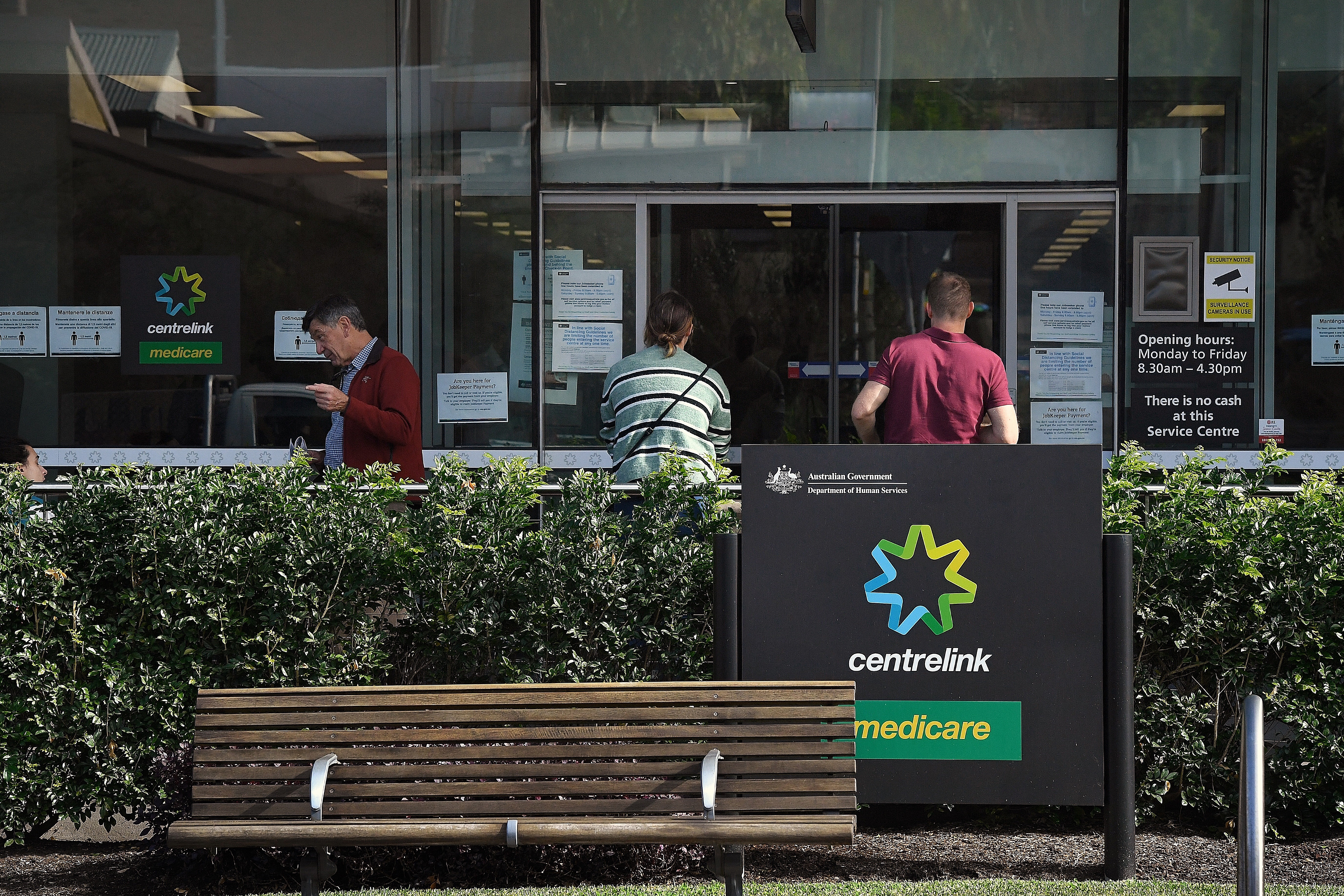The National Anti-Corruption Commission (NACC) has ruled out investigating the public officials referred to it by the robodebt royal commission over their role in the illegal, "crude and cruel" scheme.
The royal commission delayed handing down its final report last year in order to refer six people to the newly established anti-corruption body.
The identities of those officials were never made public, and were instead included in a sealed chapter in the royal commission's report that "recommends referrals of individuals for civil and criminal prosecution".
READ MORE: Accused killer apologises to campers' families but denies murder
However, today the NACC ruled out launching a corruption investigation into any of those people.
It didn't say this was because the officials' conduct was appropriate, but only that they had already been fully investigated by the royal commission and that any fresh probe was unlikely to uncover fresh evidence against them.
"The commission is conscious of the impact of the robodebt scheme on individuals and the public, the seniority of the officials involved, and the need to ensure that any corruption issue is fully investigated," the NACC said in a statement.
"However, the conduct of the six public officials in connection with the robodebt scheme has already been fully explored by the robodebt royal commission and extensively discussed in its final report.
"After close consideration of the evidence that was available to the royal commission, the commission has concluded that it is unlikely it would obtain significant new evidence.
"In the absence of a real likelihood of a further investigation producing significant new evidence, it is undesirable for a number of reasons to conduct multiple investigations into the same matter.
"This includes the risk of inconsistent outcomes, and the oppression involved in subjecting individuals to repeated investigations."
READ MORE: NSW issues historic apology for laws that criminalised homosexuality
The NACC noted five of the six people referred to it had been referred to the Australian Public Service Commission, which, unlike the anti-corruption body, can impose sanctions on officials it investigates.
The findings of the robodebt royal commission were handed down in July last year.
The commission described the scheme as a "crude and cruel mechanism, neither fair nor legal" perpetuated through "venality, incompetence and cowardice", and made scathing findings against the government and a number of ministers involved in the system.
Former ministers Christian Porter, Alan Tudge and Stuart Robert all said they had received no indication that they were included in the sealed chapter recommending civil or criminal referral.
Former prime minister Scott Morrison, who brought the proposal for robodebt to cabinet as social services minister ahead of its implementation in 2015, hit out at the royal commission's findings against him
"I reject completely each of the findings which are critical of my involvement in authorising the scheme and are adverse to me," he said last year.
"They are wrong, unsubstantiated and contradicted by clear documentary evidence presented to the commission."
READ MORE: Jury begins deliberations over Charlise Mutten's alleged murder
Robodebt raised $1.73 billion in unlawful debts against more than 400,000 people during its four-and-a-half years of operation, and the royal commission found it had led to three suicides, and likely many more.
"The commission is confident that these were not the only tragedies of the kind," Commissioner Catherine Holmes wrote.
"Services Australia could not provide figures for the numbers of people who committed suicide as a result of the scheme."
Readers seeking support can contact Lifeline on 13 11 14 or beyond blue on 1300 22 4636.





